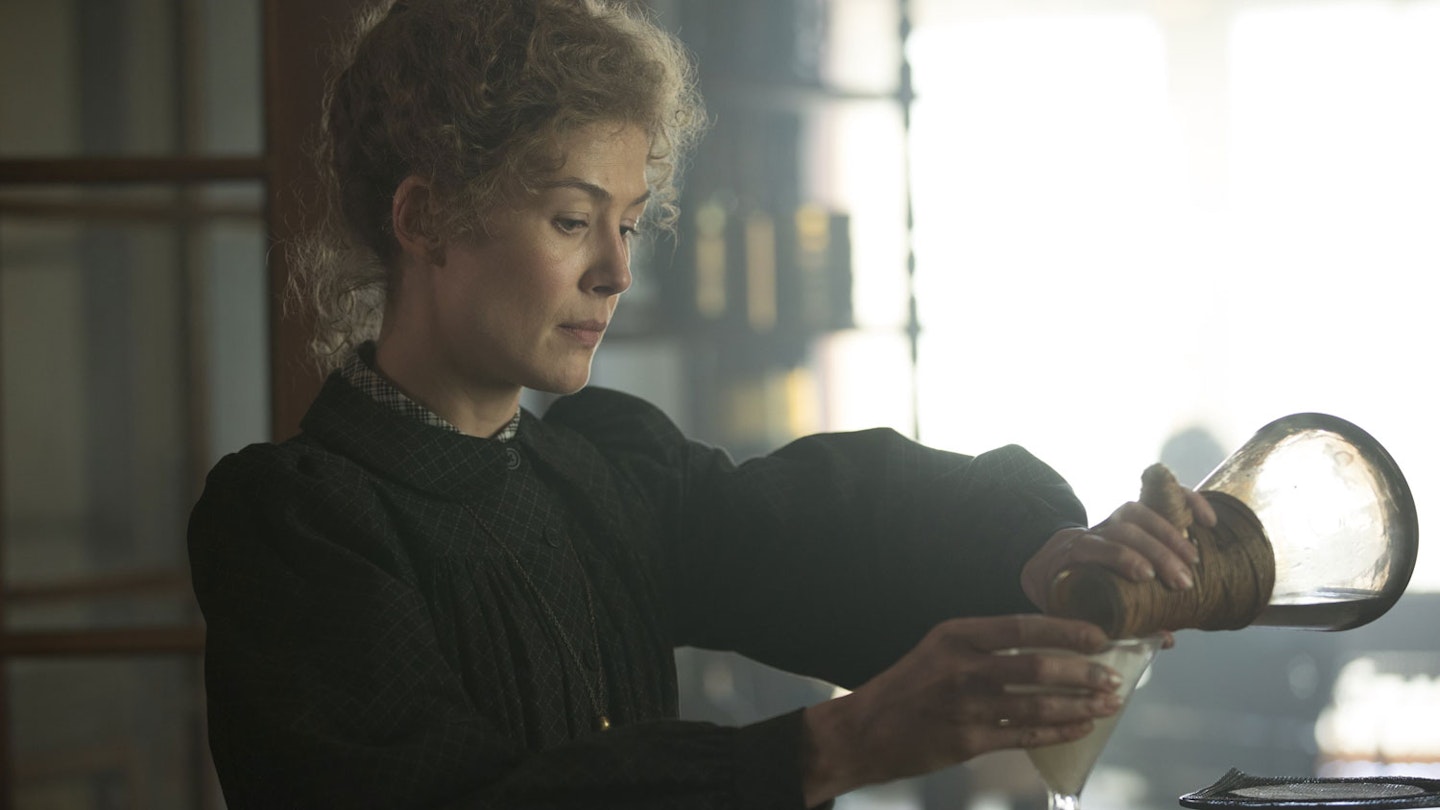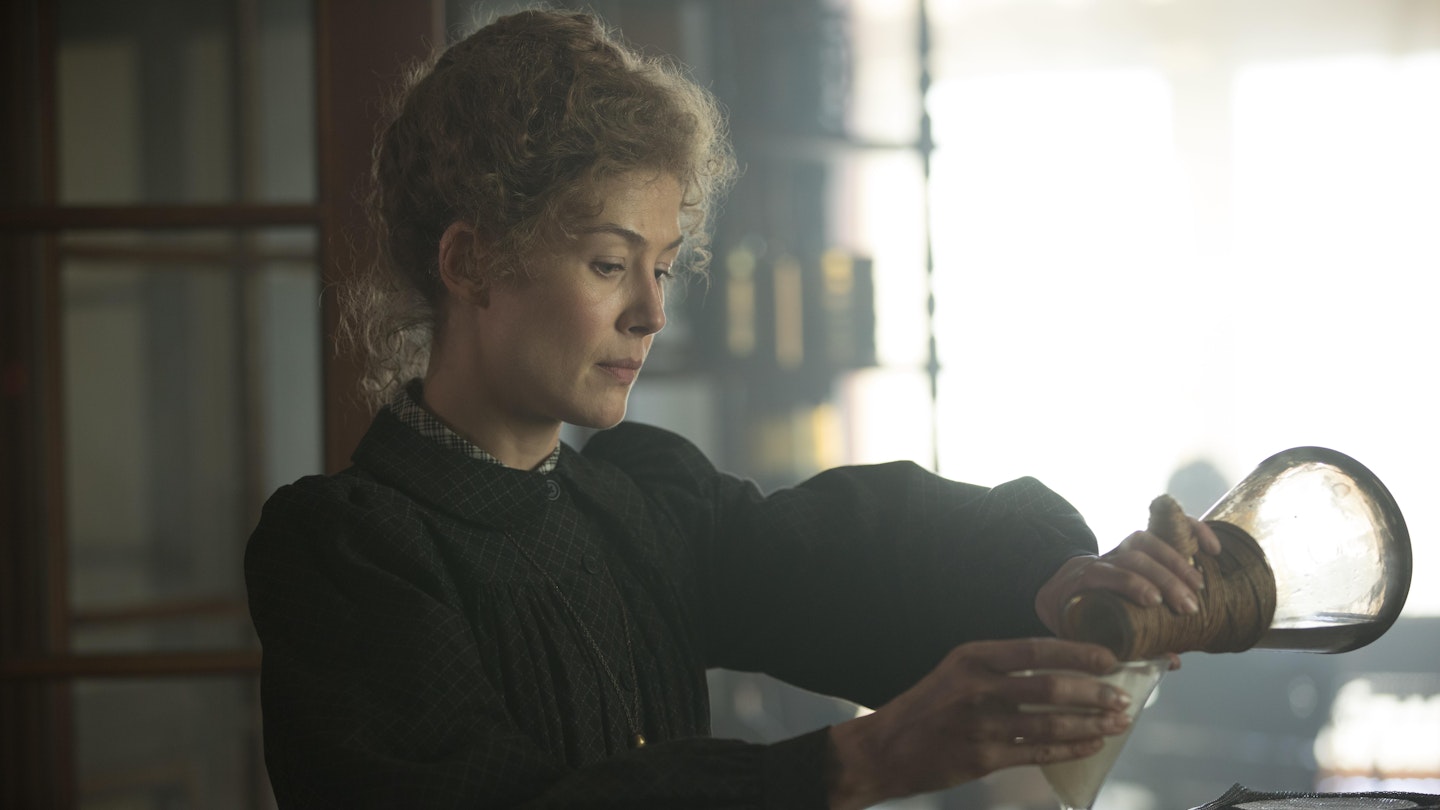Excessive exposure to radioactivity can infect the mind and body, as the singular power of such atoms can spiral out of control. The proven dangers of radium, the element discovered by Marie and Pierre Curie in 1898, seem to have set a blueprint for the direction of Persepolis director Marjane Satrapi’s Radioactive — a biopic which is far from formulaic, but somewhat overwhelmed by its source material.
Satrapi adapts Lauren Redniss’ graphic novel Radioactive: Marie & Pierre Curie: A Tale Of Love And Fallout, which makes sense considering the director’s experience with animation, but also makes you wonder whether this really translates into live-action storytelling. Rosamumd Pike plays Marie Curie with spirited, stubborn authority, but feels like a struggling anchor in a film plagued by too many unstable elements. The design of Radioactive favours high frame rates, evoking nature documentaries and solemn TV dramas, while simultaneously leaning into hallucinatory montages and woozy facial distortions. Dialogue sounds like it was clumsily inserted in the edit, rather than naturally interacting with the music (itself excessively bathetic) or seeming as if spoken by credible human beings. What remains is a squeaky-clean, artificial sense of reality.
The film aims for immersion into Marie’s psyche: her independence; her ambition; her love for her husband; her frustration at the world’s dismissal of her worth. Her story is a historic one, but Radioactive opts for dream-like vignettes over lucid analysis of the phenomena the couple struggled to control. Instead of involving the viewer in an understanding of the wonders Marie and Pierre discovered and were ultimately lost to, the disorientating audacity of the film only distances its audience. Such creativity suggests a better adaptation might have been an animated one, leaning into the original form of the text, as well as Satrapi’s past work — but by the time discoveries, marriages, births, disappointments, and crucial scientific events have all been explored and confused, the only desirable thing to do with such material is to finally let it rest.



